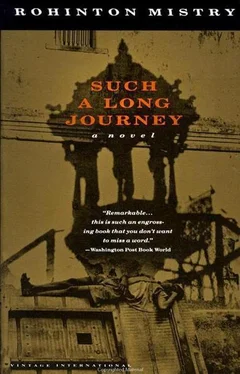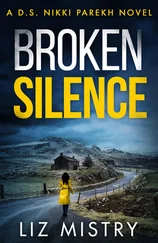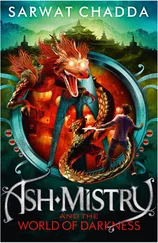But to hell with privacy, to hell with the wall, to hell with the stink, said Gustad. Tubes of Odomos were purchased, and the ointment rubbed on all exposed parts, though the mosquitoes continued to buzz and sting and madden. For some reason, the ointment worked least efficaciously for him. Half the night he spent scratching and swatting and cursing.
To take his mind off it, Dilnavaz told him about a childhood neighbour who was immune to mosquitoes. ‘It’s a true story,’ she said. ‘When he was a little boy, this man ate lots of mosquitoes. Purposely or by mistake, it is not sure. You know how children put everything in their mouths.’ But from then on, mosquitoes stopped biting this boy. He grew up into a mosquito-proof man. The insects would sit on his skin, walk in his hair, crawl down his back, but never sting. Perhaps the ones he ate changed his blood and his odour, making him one of their own. Their buzzing and hovering no longer annoyed him either; he said it was like a serenade sung lovingly in his ears.
‘So what are you suggesting?’ said Gustad, slapping his face, shoulder and chest in quick succession. ‘That we should stop using Odomos and start munching mosquitoes?’
Then the price of Odomos went up, along with the price of every necessity and luxury, from matchsticks to sanitary napkins. ‘This refugee relief tax,’ he said, ‘is going to make all of us into refugees.’
As if these problems were not enough, Roshan and Darius began demanding old newspapers. They were needed at school, on account of the refugees. Teachers arranged fund-raising contests, and the newspapers were weighed every morning. The results were announced during assembly. The English-language papers were kept separate because they used a newsprint quality superior to the regional ones, and fetched more by the kilo.
Dilnavaz tried to explain the household budget to Roshan and Darius: the only way they could pay the paper bill every month was by selling the old papers to the jaripuranawalla. When they pleaded their teachers would be angry if they went empty-handed, Gustad agreed to let them have five Jam-E-Jamshed ’s each.
Darius said he would prefer five Times of India ’s because his friends would make fun of the Parsi bawaji newspapers. Gustad would have none of that. ‘You should be proud of your heritage. Take the Jam-E-Jamshed or nothing at all.’
So Darius decided to go to the neighbours for newspaper donations. His father scoffed, ‘No one will give you a scrap.’ Since Darius insisted on trying, he set two conditions: ‘Stay away from Miss Kutpitia and the dogwalla idiot. And if you get any papers, you must share them with your sister.’
A week later, when Gustad came home and sat to remove his shoes, Dilnavaz beamingly held out a letter. He was tired after standing all the way on the bus, but his fatigue vanished. At last! One shoe off and the other shoe on, he took the envelope. It was blank on the outside. Strange, he thought, opening it:
Dear Mr. and Mrs. Noble,
It is my pleasure to inform you, on behalf of Mother Claudiana, that your daughter has won first prize in our Annual School Raffle.
May I trouble you to make arrangements for taking delivery of the prize? The doll is quite big, and I fear little Roshan will be unable to manage on the school bus. It would be a pity if it was damaged. The doll is in my office (off the main parlour) and I would appreciate it if you could arrange transportation as soon as possible.
Please accept our sincere thanks for participating in the raffle and making our fund-raising drive a success. When our new school building goes up, it will be due to the generous co-operation of parents like yourselves.
Yours truly,
Sister Constance
(Raffle Committee)
Gustad was unable to hide his disgust. ‘I thought it was Jimmy’s letter. You couldn’t say something before giving it to me?’
‘Why do you have to look so unhappy? Major wants to write, he will write. But for Roshan’s sake change your face, she is so excited, you know she has never had a doll in her life.’
He heeded her advice as Roshan came running in from the compound. ‘Daddy! Daddy! I won the doll!’
He swept her up in his arms. ‘My doll has won a doll. But you are the prettier of the two, I am sure.’
‘No! That doll is much prettier, she has blue eyes, and fair skin, so pink, and a lovely white dress!’
‘Blue eyes and pink skin? Chhee! Who wants that?’
‘Daddy! Don’t say chhee to my doll. Can we go and bring her now? Sister Constance said you must come and—’
‘Yes, I read the note. But it’s late now, maybe tomorrow, I have half-day.’
‘But school is closed on Saturday.’
‘That’s OK, Sister Constance will be there,’ said Gustad, and Dilnavaz agreed. She suggested that he telephone Sister, though, just in case she was planning to go to the market or the cinema. After all, it was no longer like the old days when the nuns stayed inside all the time, cleaning and sewing and praying.
‘Take thirty paise and go to Miss Kutpitia,’ she said, for Miss Kutpitia was the sole tenant of Khodadad Building with the luxury of a telephone. The luxury was often a nuisance, however, because neighbours (including the ones who thought her mean and crazy) would request its use or (‘please, with your permission Miss Kutpitia’) give the number to relatives and friends to receive emergency messages.
Those who went to telephone were never allowed more than two steps inside: the coveted black instrument squatted on a little table beside the front door. None the less, everyone had strange tales to report. Long conversations could be heard from the landing outside, they said, and when the door opened, there was only Miss Kutpitia inside. She lived like a miser, a typical loose-screw eccentric, with dust and cobwebs everywhere, stacks of old newspapers piled to the ceiling, empty milk bottles in corners, curtains tattered, sofa cushions spilling their insides, and cracked light shades hanging from the ceiling like broken birds and bats. There was no shortage of money, they said, that much was certain. How else could she afford Parsi Dairy Farm milk and custom-catered meals from the Ratan Tata Institute?
The reason, they said, that no one was allowed inside — not ayah or gunga or friend or relative — was because she had a dire secret: the bodies of two deceased relatives she had had embalmed and preserved, years ago, instead of handing them over for proper disposal at the Tower of Silence. Others claimed this was rubbish; there were no preserved bodies, only the dry bones. Miss Kutpitia had gone to the funeral, and after the vultures had picked the bones clean inside the Tower, she had bribed some nassasalers to retrieve them before disintegration within the central well in lime and phosphorus. Miss Kutpitia naturally shielded those bones from the eyes of the world, they said, and were the reason for her secrecy and strange ways.
‘OK,’ said Gustad. ‘I’ll go. But first let Roshan ask if it is all right. Say to her, Auntie, can Daddy please come and use your phone?’
‘I’m scared to go there,’ said Roshan.
‘Don’t be silly,’ said Dilnavaz. ‘You want your prize or not?’ The waiting doll easily conquered Roshan’s fears.
Gustad got the pruning shears and cut a rose from his precious plant. ‘Say to her, Daddy sent this for you.’
‘Now what new farus is this?’ said Dilnavaz. He ignored her with a wave of his hand which said he knew how to take care of these things.
Roshan returned with Miss Kutpitia’s consent, then accompanied him to the telephone. Night was falling, but Tehmul-Lungraa was in the compound. He spied them from the other end. ‘GustadGustadGustad.’ He had a sheaf of pages under one arm, and clutched a ballpoint pen. ‘GustadGustadwaitwaitwait.’ He came as fast as his swaying-rolling walk would permit, waving a page. ‘ImportantGustadveryveryimportant.’
Читать дальше












